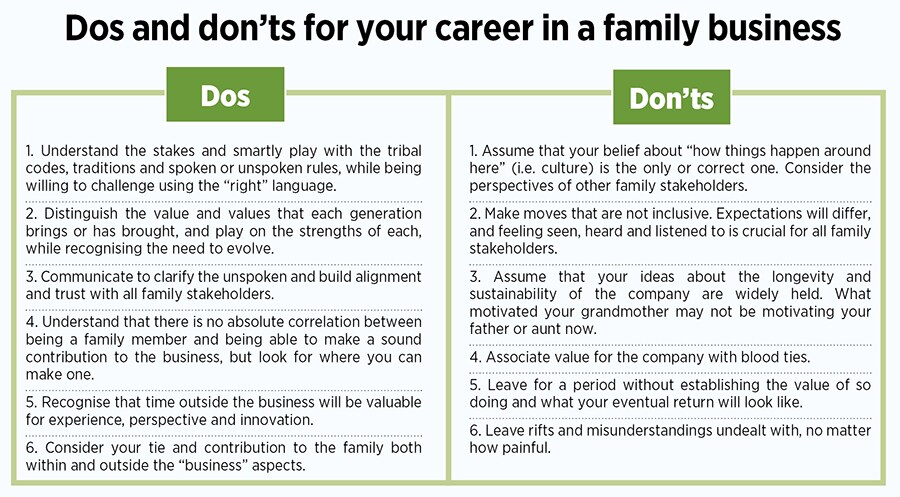
A career in the family business: Duty or choice?
Would-be joiners of family businesses can have their cake and eat it — if they get the ingredients right
 How do they decide whether to work in their family enterprise? And when they do dive in, are there winning strategies or paths that lead to leadership roles in a family business?
Image: Shutterstock
How do they decide whether to work in their family enterprise? And when they do dive in, are there winning strategies or paths that lead to leadership roles in a family business?
Image: Shutterstock
The career choices made by members of a family enterprise tend to be fraught with tension. Most experience unspoken pressure to join the family business, which becomes a problem when dreams and family expectations are at odds with each other. How do they decide whether to work in their family enterprise? And when they do dive in, are there winning strategies or paths that lead to leadership roles in a family business?
We spoke to five members of family enterprises: Katherine (Gabbie) Diaz and Marco Limcaoco from the Philippines, Shiraz Akbarally from Sri Lanka, Emilie Mellerio from France, and Andreas* from Argentina. During these conversations, we were struck by the emergence of common themes that recur in family-business careers: family identity, values and culture, emotions, attitude to change and communication.
1. Identity of family vs. self
The family “name” – in the form of family figures, mentors and aggressors, as well as the intangible but ever-present sense of belonging and parental pressure – impacts members both externally and internally.
For Andreas, both his father and grandfather had a strong doctrine about what it meant to be part of a family business empire, frequently repeating the adage that it was both an honour and a duty to be included. When Andreas joined his family’s construction business, he was initially motivated by the need to carve out a name for himself – to work hard, learn more and prove himself. But he eventually left his family business for an MBA at INSEAD followed by a consulting role in BCG. That distance allowed him to create healthier relationships and boundaries with his relatives and “reconnect” to his true, inner self.
Yet, it is not impossible to preserve the identity of the family and the self or even develop them together. In Marco’s family, the assumed path was to “do your time, succeed in big corporations, climb the ladder, and prove yourself first”. When Marco eventually joined the family business, he injected energy to bring people together across the family group via best business practices and to push the organisation into new areas. He developed a long-term vision of many new ventures that are more aligned with his interests, while maintaining the fundamentals of the business.
[This article is republished courtesy of INSEAD Knowledge, the portal to the latest business insights and views of The Business School of the World. Copyright INSEAD 2024]








